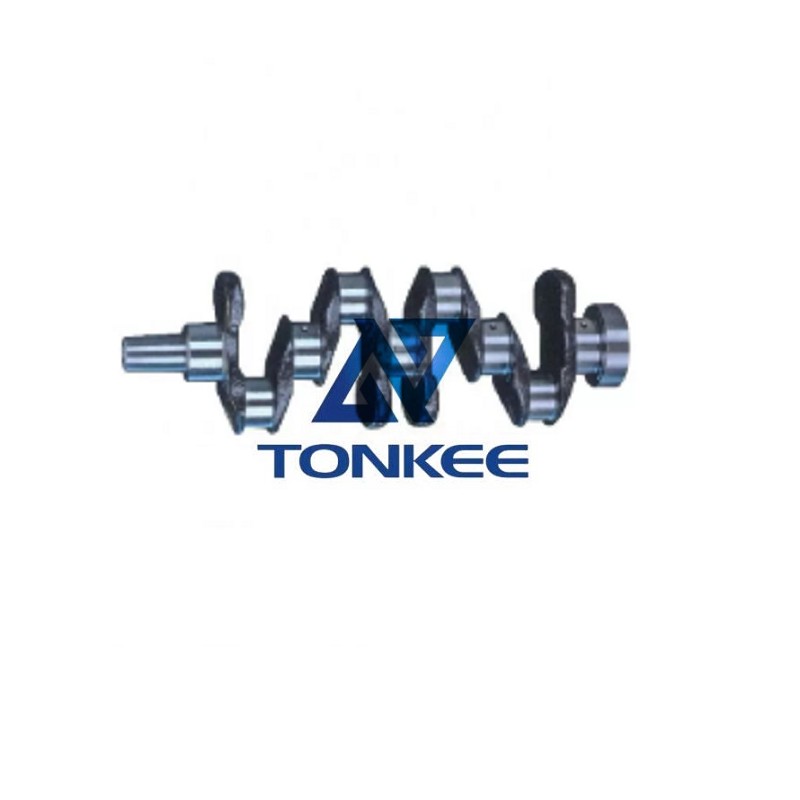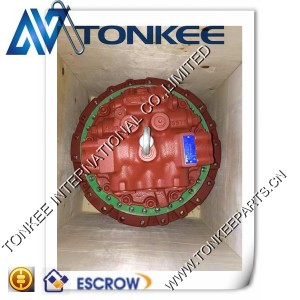
The Yanmar 4TNE94 and 4TNV94 are four-cylinder, water-cooled diesel engines, commonly used in various construction and industrial equipment, including excavators.
The crankshaft in these engines is designed with precision and durability in mind to withstand the rigorous demands of heavy-duty applications.
Material: The crankshaft is typically made from high-strength forged steel or cast iron. This material provides the necessary strength and durability to withstand the stress and load placed on it during engine operation.
Balance: The crankshaft is carefully balanced to minimize vibrations and ensure smooth engine operation. Balanced crankshafts reduce wear and tear on the engine components and improve overall performance.
Journal Sizes: The crankshaft has multiple journals that support the connecting rods and pistons. The size and diameter of these journals are critical to ensure proper oil lubrication and reduce friction. Proper oil lubrication is essential to prevent premature wear and tear on the engine.
Counterweights: To counterbalance the reciprocating motion of the pistons, the crankshaft is equipped with counterweights. These counterweights are strategically placed along the length of the crankshaft to minimize vibrations and ensure stable engine operation.
Main Bearings: The crankshaft is supported by main bearings that are fitted into the engine block. The main bearings are crucial for maintaining the crankshaft's alignment and reducing friction between the rotating crankshaft and the stationary engine block.
Rod Bearings: Similarly, the connecting rods are attached to the crankshaft through rod bearings.
These bearings allow for smooth reciprocating motion and ensure that the pistons move up and down with minimal friction.
Oil Passages: The crankshaft features oil passages that facilitate the distribution of lubricating oil throughout the engine. Proper lubrication is vital to reduce friction, dissipate heat, and extend the crankshaft's lifespan.
Keyway: The crankshaft often has a keyway or keyslot that helps in connecting it to other engine components, such as the timing gear or pulley. This ensures that the crankshaft's rotation is synchronized with the engine's other parts.
Dynamic Balancing: In some cases, the crankshaft may undergo dynamic balancing, which involves fine-tuning the counterweights and journals to minimize vibrations further and improve engine performance.
The crankshaft's proper functioning is crucial for the overall performance and longevity of the Yanmar Diesel 4TNE94 and 4TNV94 excavator engines. Any issues with the crankshaft, such as misalignment, damage, or excessive wear, can lead to engine problems, reduced efficiency, and costly repairs.
Regular maintenance, including checking and adjusting clearances, and ensuring the crankshaft is properly lubricated, is essential to keep the engine running smoothly. It's also vital to use high-quality engine oil and adhere to the manufacturer's recommendations for oil change intervals.



 English
English Русский язык
Русский язык




